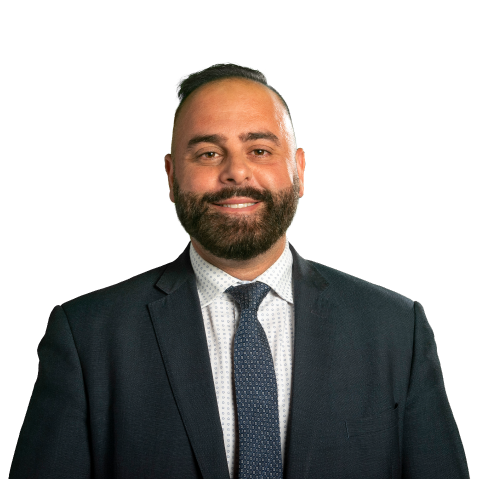Professional negligence lawyers
Professional negligence claims:
Your rights, our fight
Every day, we place our trust in qualified professionals to guide us through important decisions and actions that affect our lives, health and financial well-being. Whether it’s a doctor providing medical care, an accountant managing your finances, or an architect designing your home – these professionals have specialised knowledge and qualifications that we rely on.
When that trust is broken through negligence, the impact can be devastating. At GMP Law, we understand that professional negligence isn’t just about financial loss – it can affect your health, your future, and your peace of mind. Our role is to help you recover what was lost and hold professionals accountable when they fail to meet their obligations and cause harm.
Why Choose Gerard Malouf & Partners
Understanding professional negligence claims
Professional negligence occurs when a qualified expert fails to meet the standard of care expected in their field. This standard isn’t perfection – it’s the level of skill and care that a reasonably competent professional in the same field would provide. If this failure to meet the standard of care results in loss or damage, you may be entitled to compensation for those losses.
Common types of professional negligence include:
- Medical negligence
- Financial advisor misconduct
- Architectural or engineering errors
- Accountant negligence
- Real estate agent misconduct
- Building and construction negligence
- Surveyor negligence.
This may encompass real-world scenarios such as:
- A GP missing clear signs of cancer during multiple consultations, leading to delayed treatment
- A dentist failing to diagnose and treat obvious gum disease, resulting in tooth loss
- A financial advisor recommending high-risk investments without explaining the risks
- An accountant missing tax deadlines, resulting in significant penalties
- An architect designing a building that doesn’t meet basic safety codes
- A surveyor missing significant boundary issues before the property is purchased
- A real estate agent deliberately concealing major property defects
- An IT consultant implementing inadequate security measures leading to a data breach
- A psychologist breaching confidentiality causing personal/professional damage.
We're here to help.

Eligibility for professional negligence compensation
To establish a claim for professional negligence, several key elements must be present:
- A professional duty of care existed
- This duty was breached through substandard service
- You suffered loss or damage directly resulting from the breach
- The loss was reasonably foreseeable.
Consider the following questions to assess your situation:
- Did you have a formal agreement for professional services?
- Was there a clear understanding of the services to be provided?
- Were there noticeable mistakes or oversights?
- What specific losses or harm have you experienced?
Even if you’re uncertain about claiming, we encourage you to reach out. Our free initial consultation means you have nothing to lose by exploring your options and our professional negligence lawyers can guide you through the process.

Factors affecting compensation
Many factors can influence your compensation claim, including:
- The severity of the impact
- Duration of effects
- Financial losses incurred
- Future care needs
- Impact on quality of life.
The types of damages available for compensation in professional negligence cases can vary. While not all may apply to your situation, you may be eligible to claim for:
- Past medical expenses resulting from the negligence
- Economic losses, including current and future wage loss
- Non-economic losses, such as psychological impact
- Future care costs, typically awarded as a lump sum payment.
At GMP Law, we’re committed to helping you understand your rights and options. We’ll work tirelessly to ensure you receive the maximum compensation you’re entitled to under the law.
No Win No Fee
Fee transparency that you can trust
At GMP Law, we’re committed to ensuring you have nothing to lose.
If we don’t win your case, you won’t pay a cent for our services. This means you can focus on healing without worrying about legal costs.
How it works
No upfront costs
No contingency fee
We’ll only charge you if we win.
We maintain integrity by carefully evaluating each case. If we believe it’s unlikely to result in compensation or if the costs outweigh the benefits, we won’t take it on.
This commitment to our client’s best interests, as well as fee transparency, sets us apart from other law firms.
With a 98% success rate and over $4 billion in settlements, we’re dedicated to delivering exceptional results for our clients.
Frequently asked questions about professional negligence claims
What types of injuries qualify for a professional negligence compensation claim?
Professional negligence claims can arise from various types of harm – physical, financial, or psychological. The key is establishing that you suffered harm due to a professional’s failure to meet their duty of care.
You may, for example, be able to claim for:
- Physical injuries
- Surgical complications from medical negligence
- Construction injuries from poor safety oversight
- Physical harm from incorrect treatment
- Injuries sustained from defective professional advice.
- Financial losses
- Investment losses from poor financial advice
- Property losses from surveyor mistakes
- Business losses from accounting errors
- Construction costs from engineering mistakes
- Psychological impact
- Trauma from medical mismanagement
- Stress from financial losses
- Depression from professional betrayal.
The strength of your claim depends on proving both the professional’s negligence and the direct link to your injuries or losses.
GMP Law offers free initial consultations to help individuals explore their options. Our experienced lawyers can guide you through the complex process of evaluating your situation and estimating your compensation claim.
What are the four types of negligence and how do they affect my claim?
There are four primary types of negligence: ordinary negligence, contributory negligence, comparative negligence, and vicarious negligence.
Understanding these different types is essential for your claim:
Ordinary negligence
- Most common in professional negligence cases
- Involved failure to meet professional standards
- Examples: A doctor missing obvious symptoms, an accountant missing crucial deadlines
Contributory negligence
- Reduces compensation if you partially contributed to the damage sustained
- Can significantly impact claim outcomes
- Example: Not following professional advice accordingly
Comparative negligence
- Allows for shared fault between parties
- Compensation is adjusted based on the fault percentage of each party
- Most common in complex professional relationships
- Example: A patient neglects following post-operative instructions, resulting in complications, but the doctor also failed to give clear guidance
- Holds organisations responsible for employee negligence
- Important in claims against large firms or institutions
- Can affect who you can make claims against
- Example: A contractor is vicariously liable for a bystander’s injury caused by an inexperienced, unsupervised worker operating heavy machinery without proper training.
Is there a time limit for professional negligence claims?
Yes, strict time limits apply:
- Three limits for personal injury losses
- Six years for purely financial losses.
The timeline for claims usually begins from one of the following:
- The date of the negligent act
- The date the damage was discovered
- The date you reasonably should have discovered the issue.
Exceptions may apply in special circumstances, but it’s important to seek legal advice promptly to protect your rights.
How do you prove professional negligence?
Proving professional negligence involves establishing four essential elements:
- Duty of care: Demonstrating that the professional owed you a duty of care
- Breach of duty: Showing that this duty was breached through substandard conduct
- Causation: Establishing a direct link between the breach and the harm suffered
- Damages: Providing evidence of the damages incurred as a result.
Useful types of evidence include:
- Documentation of errors or omissions
- A signed service contract outlining the professional’s obligations
- Expert assessments on the impact of the breach
- Medical records or reports detailing the extent of harm
- Correspondence related to the services provided.
How long does a professional negligence claim take?
The duration of a professional negligence claim can vary widely. Most cases typically take between 12 to 24 months to resolve, but more complex cases may take longer. Factors such as the availability of evidence, cooperation from all parties, court schedules, and settlement negotiations can also extend the timeline.
Understanding professional relationships and their complexities
Professional relationships carry unique challenges that can affect negligence claims. Our extensive experiences have revealed a few critical factors.
The power imbalance
Professional relationships often involve a significant knowledge gap – you’re seeking expert help because you lack the specialised knowledge yourself.
This creates:
- Difficulty in recognising negligence when it occurs
- Challenges in questioning professional judgement
- Reluctant to speak up when things seem wrong
- Potential for exploitation of trust.
For example, a patient might not question a doctor’s treatment plan even when experiencing unusual symptoms, or a client might not challenge their accountant’s advice despite concerns about tax implications.
This is why seeking legal advice is always a prudent step. Professional negligence lawyers have the expertise to assess whether a professional may be failing in their duty of care and can guide you through your options.
Communication breakdowns
Professional negligence often stems from communication failures:
- Technical jargon obscuring important information
- Assumptions about client knowledge
- Failure to document important decisions
- Unclear chains of responsibility.
We’ve seen cases where architects assume clients understood technical drawings, leading to expensive construction mistakes, or where financial advisors used complex terminology that masked risky investment strategies.
Documentation and evidence
Professional relationships generate various forms of evidence:
- Formal agreements and contracts
- Email communications and meeting notes
- Professional opinions and reports
- Financial transactions and records
Understanding how to interpret and use this evidence is essential. For example, in medical negligence cases, seemingly routine notes can reveal critical oversights, while in financial cases, email trails often expose inadequate risk warnings.
Real cases, real results
The compensation claim process: Your journey with GMP Law
Initial consultation
Evidence gathering
Claim submission
Negotiation
Court representation
Ongoing support
Our promise to you
Why trust GMP Law with professional negligence claim?
At GMP Law, we handle your claim so you can concentrate on what matters most: your recovery.
We commit to
Clear, straightforward communication
Regular updates on your case as it progresses
A personal injury lawyer who understands your unique situation
Vigorous negotiation to maximise your compensation
Empathetic support throughout your journey
Specialised knowledge
Our accredited personal injury lawyers have years of experience in accident injury claims, giving us deep insight into the nuances of these claims.
Proven track record
Difficult case policy
Australia-wide assistance
With lawyers across the country, we’re here to help, wherever you are.
Meet the professional negligence team
Meet some of the diverse and dynamic compensation lawyers who support our clients with their negligence claims.
We're here to help maximise your compensation
Book your free, confidential consultation with one of our personal injury lawyers using the form below, or simply call us 1800 004 878.




